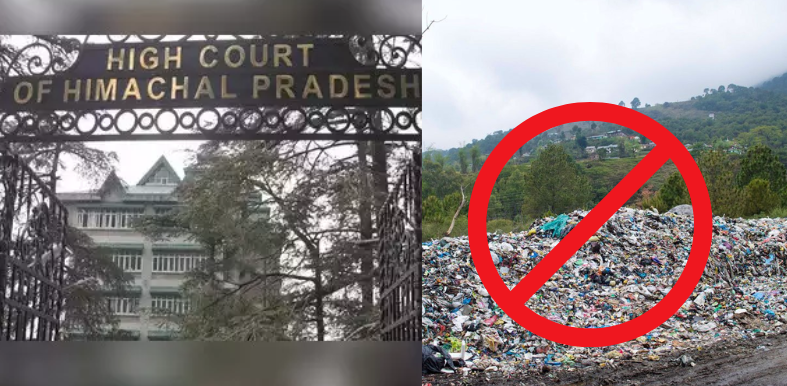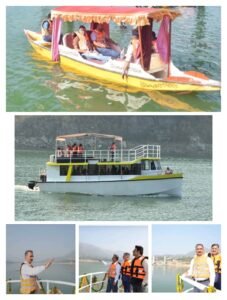Himachal High Court advocates mandatory garbage bags for tourists to promote sustainable tourism

MANDI: In a move inspired by Sikkim and Bhutan’s successful eco-tourism model, the Himachal Pradesh High Court has asked the state government to mandate that all tourists entering the state carry garbage bags for waste disposal. This directive aims to enhance waste management practices and promote sustainable tourism in the region.
Drawing lessons from Sikkim, known for its rigorous environmental policies, the high court suggested that Himachal Pradesh could adopt similar measures to maintain its natural beauty. Justices Tarlok Singh Chauhan and Sushil Kukreja issued these recommendations, emphasising the need for responsible tourism practices.
The high court noted, “To promote sustainability across tourist destinations and ensure community participation, the state should consider implementing a policy requiring all tourist vehicles to carry a large garbage bag, with tour operators, travel agencies and drivers responsible for educating tourists on proper waste disposal.”
The proposal is part of a broader set of public interest litigation cases addressing environmental concerns in Himachal Pradesh. The high court had previously recommended that the state government consider imposing solid waste management charges on tourists to further bolster these efforts.
Additional directives from HC:
1. Green tax audit: The high court highlighted that while a green tax is levied on tourists in certain districts, there has been no audit to ensure the effective use of these funds. Authorities have been asked to submit an affidavit detailing the expenditure of the green tax.
2. Municipal Waste Management Corporation: The court proposed the establishment of a Municipal Waste Management Corporation, similar to the model in Goa, to streamline waste management processes.
3. Plastic buyback policy: Noting inefficiencies in the state’s plastic buyback policy, the high court directed that the programme operate daily to incentivise waste collection. This initiative could also provide a livelihood for many, especially ragpickers.
4. Special task forces: The high court directed the formation of Special Task Forces (STFs) comprising members from municipal corporations, state and district legal services authorities, the Tourism Development Corporation, the Forest Department, NGOs, and other stakeholders to focus on cleaning hillsides, streams, and other areas.
5. Trekking route ecosystems: The state government was instructed to develop sustainable ecosystems along trekking routes, including setting up checkpoints for monitoring waste disposal by tourists.
6. Tourist facilities and SOPs: The high court recommended the establishment of tourist information centers, eco-friendly toilets, and the creation of standard operating procedures (SOPs) for adventure companies, local guides, and camp owners to ensure proper waste management.
In a related matter, the court reiterated the need for immediate action to stop the discharge of sewage into the Chandrabhaga River at specific locations. The Deputy Commissioner of Lahaul and Spiti was ordered to prevent untreated sullage discharge, with a compliance report due at the next hearing.
Additionally, the court directed the government to organize training programs for panchayats and urban local bodies on waste segregation and the establishment of material recovery facilities, involving NGOs such as Healing Himalayas and Waste Warriors.




